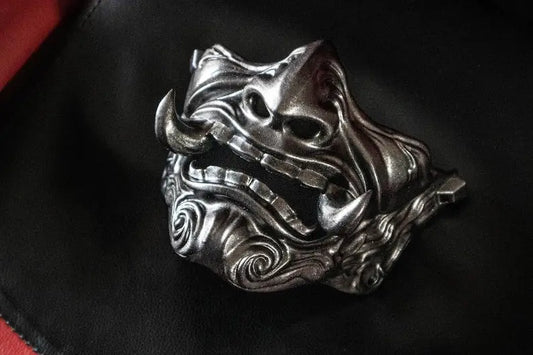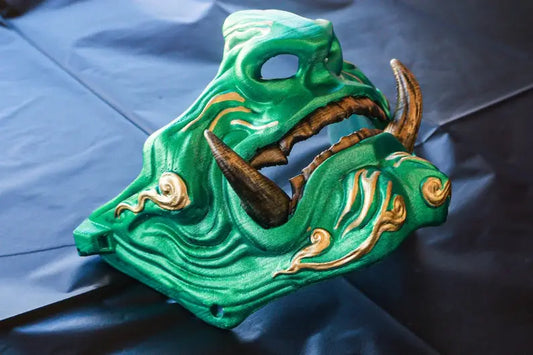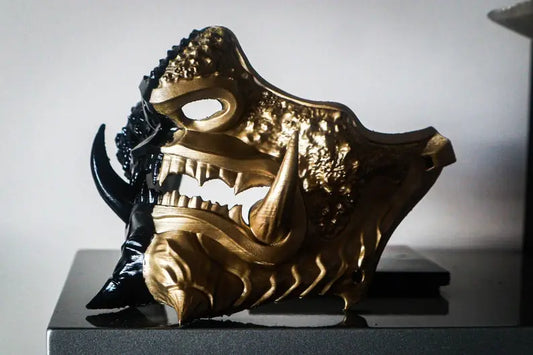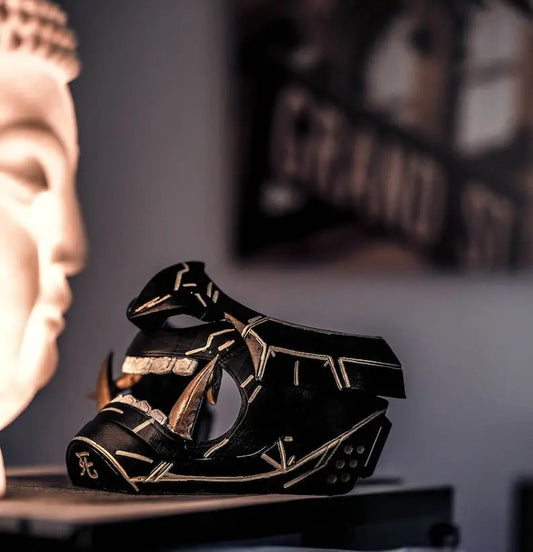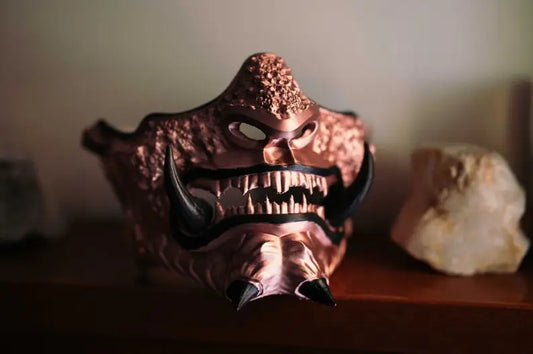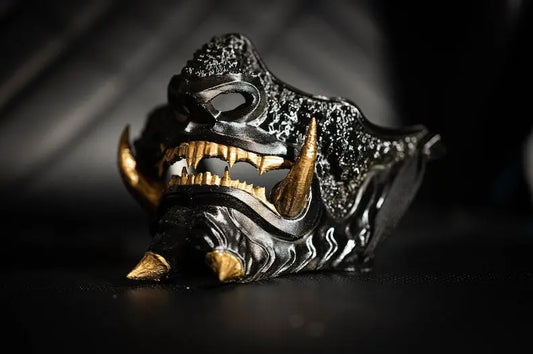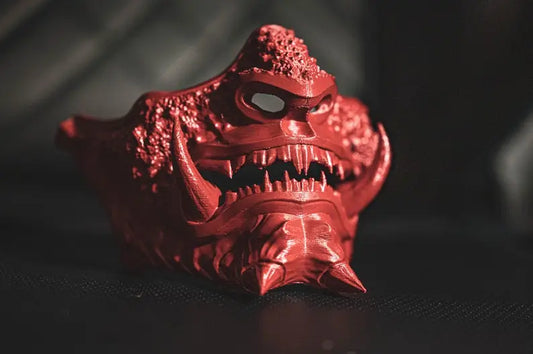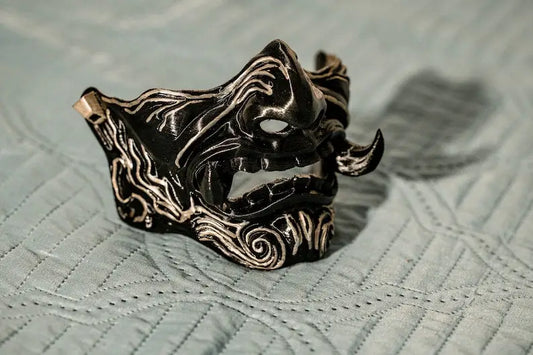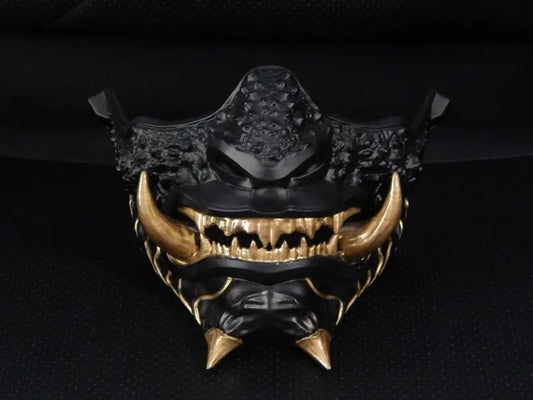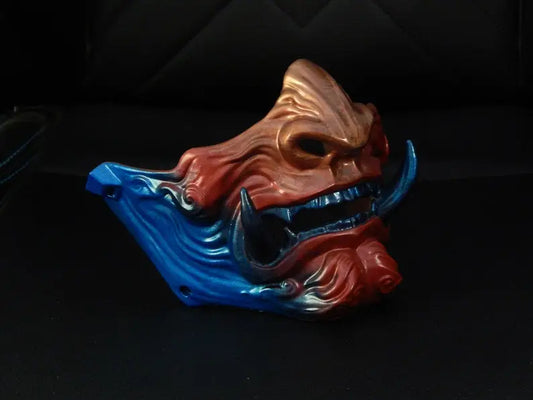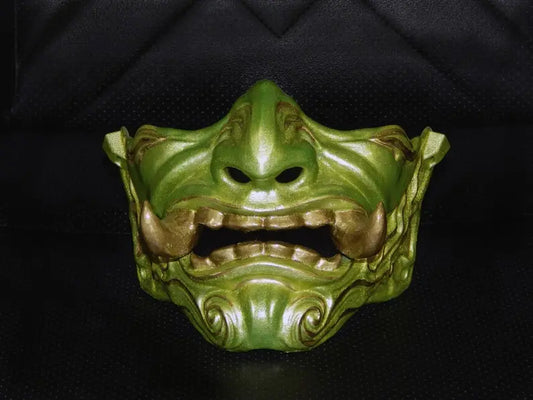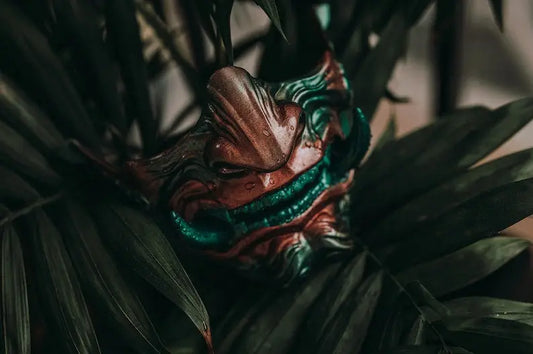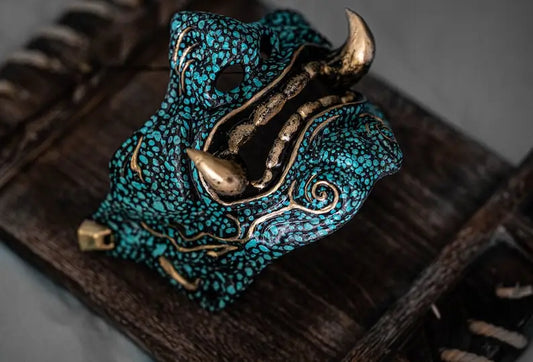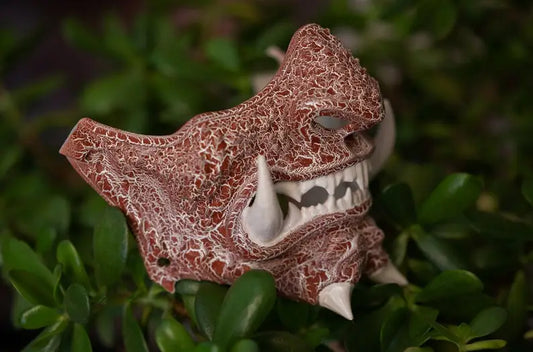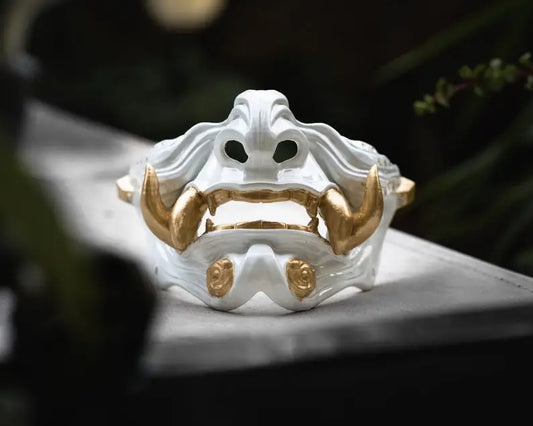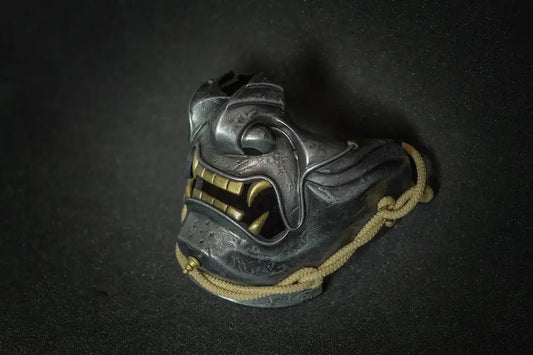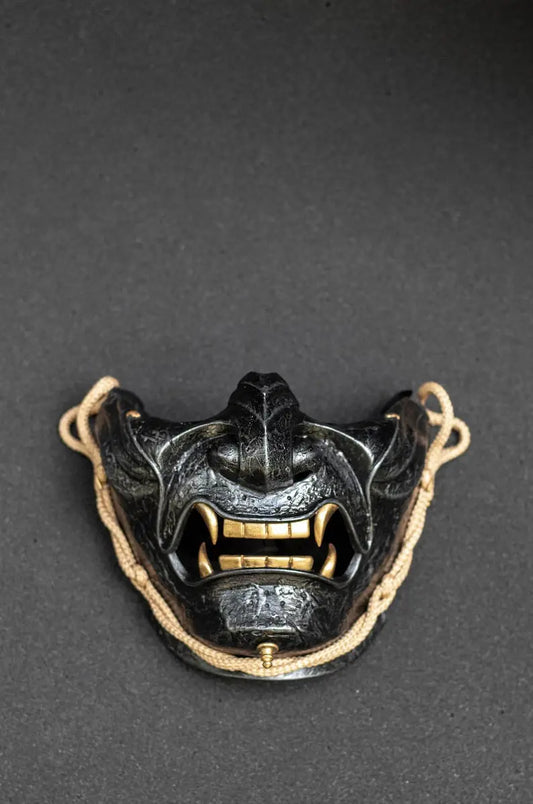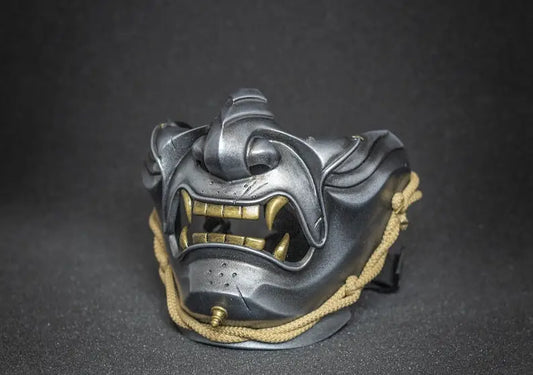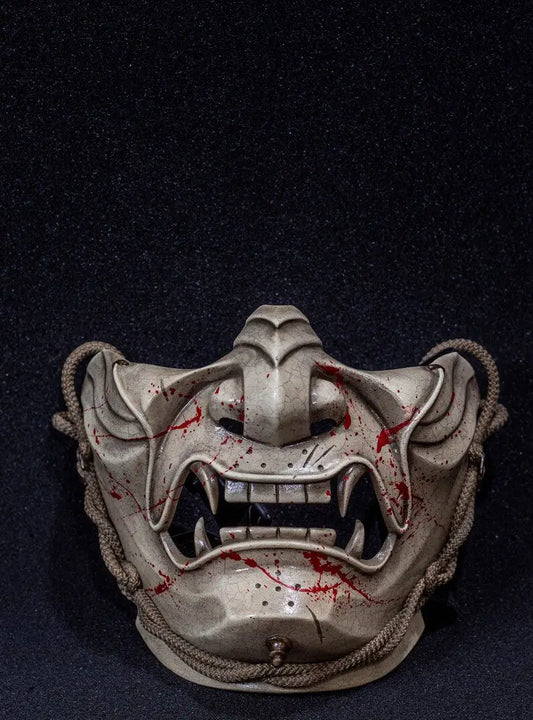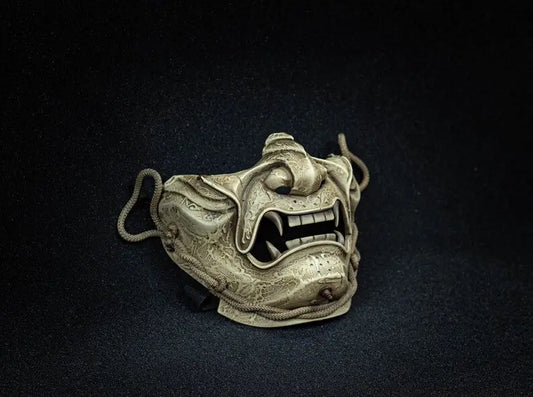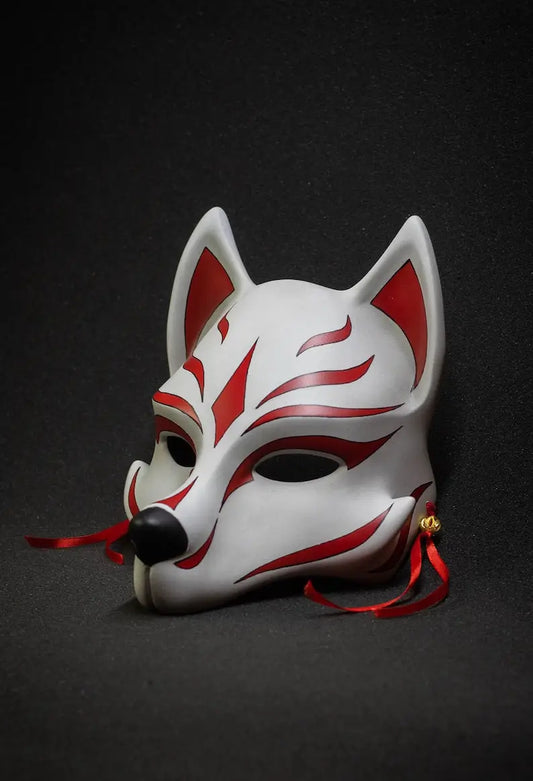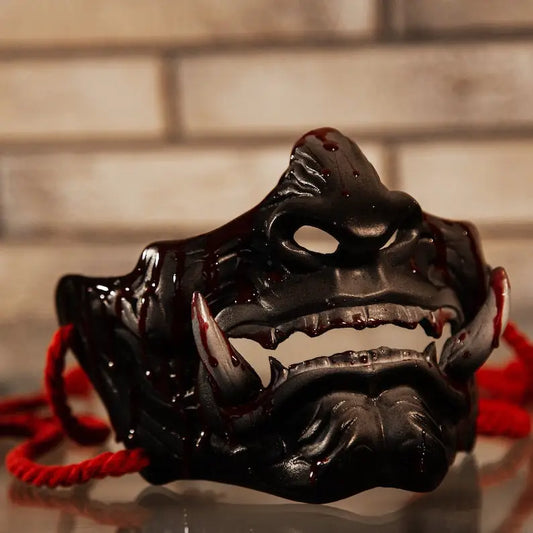🎭🔥 Japanese Masks: Tradition, Transformation & The Ultimate Cultural Drip 😤🦊
A lone figure walks through the shrine gates. In one hand, a candle. In the other, a painted mask. The light catches its eyes — narrow, sharp, almost alive. They lift it. Wear it. And in that moment… they become something else.
That’s the power of a Japanese mask.
From sacred rituals to samurai theater, from Shinto festivals to anime battles, Japanese masks are more than face coverings — they’re icons of identity, folklore, power, and transformation. Worn by gods, demons, dancers, and warriors, they blend ceremony and drama, art and function, spirit and slay.
And today, you can wear that story.
Or hang it with pride.
Or give it to someone who needs a bit more mystic energy in their life. 🎭✨🧧
🦊 What Are Japanese Masks? (Spoiler: They're Not Just for Cosplay) 👹🎎
Japanese masks — or men (面) — have been used for over 1,000 years in religious rituals, Noh and Kabuki theater, dances, festivals, and more. Each mask embodies a character, a spirit, a story — whether it’s divine, demonic, tragic, or trickster.
Masks aren't just worn — they're invoked. And when you put one on, you step into a role, a realm, and an entire cultural legacy. 🕊️🌙
🎭 Types of Japanese Masks:
| 😈 Mask Type | 📜 Name (JP) | 💡 Meaning / Use | 🔥 Vibe It Brings |
|---|---|---|---|
| Demon Mask | Oni (鬼) | Represents demons, punishers, or fierce guardians | Power, rage, intimidation 😤🔥 |
| Fox Spirit | Kitsune (狐) | Messenger of Inari, trickster, or divine entity | Mysterious, flirty, divine 🦊✨ |
| Ghost Woman | Hannya (般若) | Vengeful female spirit consumed by jealousy | Elegance + inner chaos 💔🔥 |
| Old Man / God | Okina / Hyottoko | Wisdom, good luck, awkward comedy roles | Comedic or sacred, wise elder vibes 🧓😄 |
| Theatrical Mask | Noh & Kabuki Men | Used in ancient Japanese theater | Emotionally complex + historical 🎭 |
| Tengu Mask | Tengu (天狗) | Crow-beaked forest spirit, protector or prankster | Warrior spirit meets nature guardian 🐦⚔️ |
🖌️ Materials Used:
| 🔨 Material | 🧵 Common In | 🧠 Symbolism |
|---|---|---|
| Wood | Noh masks, carved oni | Traditional, sacred, spiritual weight |
| Paper Mache | Festival masks | Lightweight, festive, symbolic |
| Resin/Plastic | Cosplay & wall décor | Durable, display-ready, customizable |
| Ceramic/Porcelain | Display pieces | Decorative elegance, ancestral energy |
💥 Why Japanese Masks Are Way More Than Face Art 🎴🔥
Sure, they look epic. But here’s why Japanese masks are spiritual weapons of aesthetic + meaning:
1. 🔮 They’re Living Symbols
Each mask isn’t just a face—it’s an entity. When you wear one, you step into a mythological role, whether it’s divine, demonic, or heroic. ✨
2. 🎭 Theater & Tradition in Every Fold
Japanese masks hold centuries of performance and prayer — from sacred Noh dances to the fierce kabuki stage, they bring emotion and energy to life.
3. 🧥 Fashion Meets Folklore
Streetwear fits? Cosplay kits? Bedroom altars? Wall-mounted art? Japanese masks work in every aesthetic lane. Rock them with a hoodie or pair them with your kimono.
4. 🎁 The Dopest Cultural Gift Ever
Give someone a Hannya mask and it says: "You’re powerful, elegant, dangerous."
Give a Kitsune? "You’re sly, blessed, and beautiful."
Give an Oni? "No one messes with you."
5. 🏮 Ritual Energy You Can Hold
Whether you believe in spirits or just need a confidence boost, wearing or owning a mask is like summoning an energy. They’re talismans, protectors, and artistic manifestations.
😈 How to Use, Style & Display Japanese Masks Like a Mythical Icon 🎐💫
You don’t have to be on a shrine stage to rock a Japanese mask. Here’s how to wield them in your daily life, con appearances, photoshoots, or as sacred room art 🖼️💥
🔥 Ways to Wear or Display:
| 💡 Use Case | 🎭 Recommended Mask Type | 🌟 Why It Works |
|---|---|---|
| Cosplay / Con Gear | Oni, Kitsune, Hannya | Show-stopping fits, complete transformation 💥 |
| Wall Art / Room Vibes | Tengu, Oni, Noh | Turns your space into a temple of legends 🌸 |
| Photoshoots | Hannya, Kitsune, Ghost Masks | Intense aesthetic, perfect for storytelling 📸 |
| Shrine Setup / Altar | Okina, Fox, Daruma adjacent | Spiritual corner? Add ancestral magic 🔮 |
| Festival / Streetwear | Paper Kitsune, Nebuta Masks | Light, fun, expressive — perfect for matsuri 🎆 |
💡 Pro tip: Pair with haori jackets, fans, or yukata for a fully immersive vibe. Extra credit if you light incense or hang lanterns with it 😤🕯️
🌕 Japanese Masks Are Icons of Spirit, Style & Self 🎭🕊️
A mask isn’t just a costume.
It’s a vessel. A legacy.
A face that lets you speak louder — or remain beautifully unreadable.
Japanese masks give you power you can wear.
They tell stories your face doesn’t need to.
They hold emotions too sacred to name.
And they’re beautiful, haunting, and unforgettable.
So whether you…
👹 Want to own your rage
🦊 Hide in mystery and mischief
🎭 Pay homage to Japanese culture
🎁 Gift someone their spiritual mirror
A Japanese mask is more than just something you put on.
It’s something you become.


